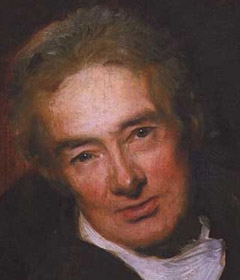|
Intermix.org.uk is a website for the benefit
of mixed-race families, individuals and anyone who feels they have a multiracial
identity and want to join us. Our mission is to offer a view of the mixed-race experience, highlighting icons, film, books, poetry, parenting techniques, celebrities, real lives and much more. Our online forums are a great place to meet others, ask questions, voice your opinions and keep in touch. Sign up for our monthly newsletter and delve into our pages. Want to join in? Become an Intermix member to take part: |
Amazing Disgrace
 The Real William Wilberforce.
The Real William Wilberforce.
There are those that are hailing the film Amazing Grace as a true historical depiction of the fight to abolish slavery and indeed in this bicentenary year of the British Parliament Act to abolish the slave trade, maybe we should be thankful for how far we've come and join in the celebrations.
So far we've heard little of the slaves and free men and women that campaigned tirelessly for the abolishment of this practice but we've already heard more than enough about William Wilberforce, who if Amazing Grace were to be believed, lead the way in the abolishment of the slave trade.
Hollywood may have given William Wilberforce the stamp of respectability but we thought you should know a few less well know facts about Mr Wilberforce.
Wilberforce was not a life- long activist as depicted in the film. He only became involved in the anti- slavery movement when sent in by Prime Minister William Pitt. William Pitt was engaged in the buying of Africans for forced recruitment into the West India Regiment, which was then used to suppress African uprisings, after which the soldiers were released back to Africa to engage in further wars against other Africans. (Ref: First Black Britons 2006)
Wilberforce opposed the Haitian revolution. Toussaint L'Ouverture and tens of thousands of Africans fought for their freedom from 1791-1804, but Wilberforce did not approve of Africans establishing their own freedom and actually voted to send British troops to put down the rebellion and maintain slavery. (Ref: Hart 1998.p33) The Haitians ultimately emerged victorious to become the first independent black nation in the 'New World'.
Wilberforce was not against cruelty to Black people. He suggested that blacks should only be whipped at night, as this was better for production. He was also an advocate for Black men being put to work in breeding farms. Slave breeding farms became more popular after the slave trade abolition (1807), which meant an increase in rapes of African girls and women and more
forced pregnancies and abortions. (Ref: Hochschild 2005 p.314)
Wilberforce was a drug addict (opium) and a frequent user of brothels. At this time, many African women were forced to work in brothels in England. (Ref:Howarth 1974 p456,7,562) Wilberforce was against women's movements to end the slave trade. In 1824 when Elisabeth Heyrich published a pamphlet calling for immediate freedom, rather than welcoming her support, Wilberforce denounced her "as such things were not the concern of women". He also did not wish women to have the vote.
(Ref: Williams 1997 p.182)
Wilberforce did not want immediate freedom for African people but thought it should be phased in over decades. Hence his comments - ' If we can prevent the planter buying more slaves the only way he will be able to increase his stock is with the sons and daughters of the slaves he already has.' (REF:Martin 1993 p73,74,Ferguson 1999 p 149)
Wilberforce practiced racial discrimination 'When members and friends of the African and Asian Society dined at a tavern in 1816, with Wilberforce in the chair, the token Africans and Asians invited to the gathering were separated from the other guests by a screen set across one end of the room' (Fryer 1984 p.234)
What is sad is that most of these facts about William Wilberforce would have been available to anyone making a film about his life and that rather than depict the true man Hollywood chose to misrepresent him as the saviour of the slaves.
Related article: Mixed-Race Books Axe Laid To The Root
Click here for Mixed-Race Icons: Robert Wedderburn
Source:scotsman.com
